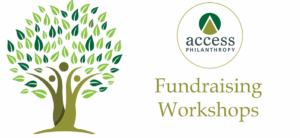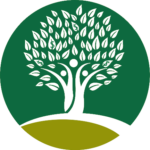
Thank you for registering for our workshop.
We will share login credentials a week before the event
Contact us if you have any questions.
by admin

Thank you for registering for our workshop.
We will share login credentials a week before the event
Contact us if you have any questions.
by
by
Edgar Villanueva, CEO of Decolonizing Wealth Project and Liberated Capital had a problem with the request for pluralism, published in an op-ed in the Chronicle of Philanthropy in April. The authors* asked for readers to stop expecting foundations and philanthropists to pledge allegiance to narrow sets of prescribed views.
Villanueva’s letter to the editor, titled “Debunking the Myth of Philanthropic Pluralism” (April 26, 2023), begins by saying “the idea that philanthropy’s biggest challenge is divisiveness reflects a level of fragility that impedes social-justice work.” He has plenty more to say about that. Link to the letter.
*Op-ed authors:
by
By Laura Wilson
This spring, CHANGE Philanthropy released the 2022 Diversity Among Philanthropic Professionals (DAPP) report, the third iteration of a wide-reaching survey originating in 2018. The DAPP report provides a much-needed snapshot into the diversity of grantmaking organizations in the United States. In February, I attended a webinar to get the author’s perspectives on the findings. Read the full report here.
An overview of the survey results is included beneath the graphic. My takeaways? The philanthropy sector has made some positive strides in diversity over the past four years to be certain. Women are slowly inching their way to men-dominated supervisory and board roles. Disability and Indigenous representation are also on the rise.
However, there are still holes, primarily centering around a workplace’s perceived safety to marginalized communities (specifically those with disabilities, uncertain immigration status, and LGBTQ+ identifiers). If the coordinators of this survey are able to reach more foundations that fill out the statistical weaknesses, this report will become even more valuable as a diversity snapshot tool.
Diversity Among Philanthropic Professionals Survey Results |
||
|
77 Foundations (38% decrease from 2020 Survey) |
2,199 Individuals (8% decrease from 2020 Survey) |
43% Response Rate (9% decrease from 2020 Survey) |
|
LGBTQ |
Disclosure of Disabilities |
People of Color |
|
Only half of LGBTQ people working in philanthropy are out at their workplace |
More than 9 in 10 of people with a disability in philanthropy are not out about their disability to all or most of their co-workers |
43.2% people of color
|
This year’s survey reached 77 organizations (with 48 returning from the previous 2020 DAPP) with a 43% response rate—a decrease from the 2020 survey which reached 124 organizations with a 54% response rate. Nevertheless, this year’s DAPP reveals important information on the state of diverse philanthropy, particularly concerning people with disabilities and non-heterosexual sexual orientations.
The first major shift noted by the report’s authors was a significant increase in people identifying with a disability. Those responses “nearly doubled over 2020 findings, from 12.6% (n=302) in 2020 to 34.2% (n=509) in 2022” with the majority of that increase attributable to an increase in mental health disabilities.
However, with that increase, disclosure of disabilities in the workplace still remained quite low: more than two thirds. All other identities surveyed saw some manner of increase in disclosure over the cumulative six years of the DAPP survey.
The authors noted a rise in the use of “decline to state” and “multiple” identities” in both the disabilities section as well as the sexual orientation section indicating increasing complexity and cross-sections among identities.
Other shifts include a drastic increase in the percentage of Indigenous individuals serving as board members (1.3% in 2020 to 6.6% in 2022). There was also an increase in women in supervisory staff roles—a 10% increase from 2020.
Notable categories that remained steady include the number of LGBTQ+ identifying people who remained “in the closet” at work and the selection of “decline to state” category when referring to immigration status (remaining near 12%).
In terms of type of foundations, across most sectors, public funders lead the way with the most diversity in all roles with the best POC, genderqueer, and disabled representation. Corporate funders reach the top with the best representation of people born outside the US. Left behind in second and third are community and private organizations.
During the webinar, the authors acknowledged there are clear data weaknesses when it comes to organizations in the south and corporate organizations (out of 77 total foundations, five were based in the south and three were corporate) that may skew the gains or losses of both categories. In their survey distribution for the 2024 DAPP, they hope to reach more organizations that fit these descriptors to get a more accurate picture of geographic and organization type trends.


by

by
To commemorate Black History Month, the Minneapolis/St. Paul Business Journal highlighted 200 Black leaders in the Twin Cities region. If you have a subscription, you can view the profiles here (As of this article’s publication):
The First Round of 50 | The Second Round of 50 | The Third Round of 50
Here are the names
by
We are grateful for the opportunity to have worked with you! Thank you for your mission and your great work in the community.
Thank you also for taking the time to complete our online survey.
At Access Philanthropy, client feedback is critical in facilitating our continual improvement processes.
Your opinion will assist our team in understanding how we can improve our existing services, what are the gaps and how we can continue to add value to all our clients’ projects.
Again, we thank you for taking the time to complete our Client Feedback Survey.
by
“Contract Position: Access Philanthropy seeks experienced grantwriters, who can work with a variety of nonprofit clients and write with clarity and dynamism. The writer will join a talented and growing team of writers, researchers and consultants who have spent decades working in nonprofit and funding communities.
About Access Philanthropy
Access Philanthropy Inc. (API) has been around for twenty years, working with (large and small) nonprofit and government agencies locally, nationally, and internationally.
API is known locally and nationally for close, knowledgeable working relationships with every client; great information’ great writing/messaging’ and great people working in a great team.
API supports organizations
API is one of the premier nonprofit fundraising support teams in Minnesota, providing prospect research, funding workshops, grant production, and organizational and fundraising planning
Qualifications: We Need People Who
What We Offer
Work with GREAT clients
$50/hour minimum for the first year. Generally, 20-25 hours/month, typically 5-7 hours/week
Next Steps
Send: cover, resume and WRITING SAMPLES to [email protected]
Questions: [email protected]
Access Philanthropy is an equal opportunity employer. All applicants will be considered for employment without attention to race, color, religion, sex, sexual orientation, gender identity, national origin, veteran or disability status.”